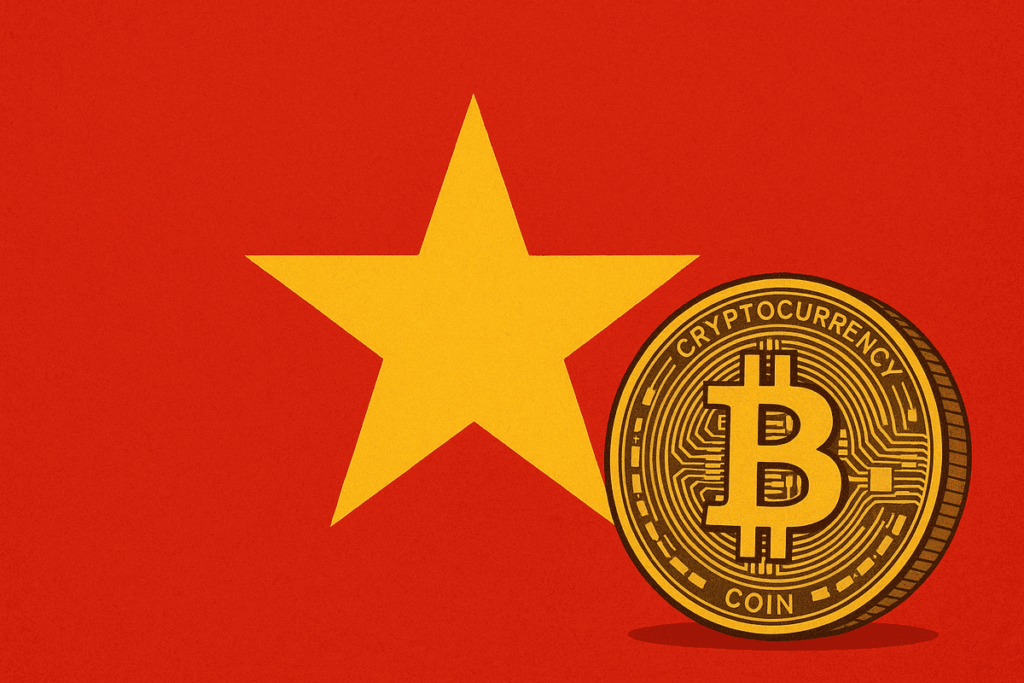Vietnam has officially legalized crypto assets, ushering in a new era for the country’s digital economy through a sweeping legislative reform passed by the National Assembly on June 14, 2025. The newly enacted Law on Digital Technology Industry provides, for the first time, a legal framework that defines, classifies, and regulates digital assets, ending years of regulatory ambiguity.
Set to take effect on January 1, 2026, the law not only clarifies the status of blockchain-based cryptocurrencies like Bitcoin and Ethereum but also signals Vietnam’s broader ambitions to transform itself into a global hub for digital innovation, from semiconductors to artificial intelligence.
A regulatory response to global pressure and domestic momentum
The move follows years of fragmented policy and growing international scrutiny. Since 2023, Vietnam has remained on the Financial Action Task Force (FATF) “gray list”, largely due to deficiencies in anti-money laundering controls tied to virtual asset activities. Mounting pressure to resolve these gaps led Prime Minister Phạm Minh Chính to issue a directive in March, accelerating efforts to formalize crypto regulation.
Newsletter
Get weekly updates on the newest crypto stories, case studies and tips right in your mailbox.
In response, the Ministry of Finance and the State Bank of Vietnam worked to finalize the legislative draft, which was passed unanimously. The law sets out to align the country’s crypto policies with international best practices, particularly around financial security and compliance.
Digital assets redefined: Virtual vs. crypto
A key aspect of the new law is its clear bifurcation of digital assets into two distinct categories:
- Virtual assets refer to non-financial digital tools used for exchange or investment purposes. These exclude tokenized fiat currencies such as a digital Vietnamese Dong or any financial instruments like stocks or bonds.
- Crypto assets are defined as blockchain-based encrypted digital units that use decentralized technology to verify ownership and enable peer-to-peer transactions. This category includes cryptocurrencies such as Bitcoin and Ethereum, and explicitly excludes assets governed under civil, securities, or banking law.
By distinguishing between these types, Vietnam sets a precedent in Asia for regulating digital assets with nuance, rather than treating all digital value instruments under a single regulatory lens.
Creating guardrails for a $105 billion crypto market
The law grants the Vietnamese government the authority to define business conditions, operational categories, and compliance requirements for all digital asset-related activities. Regulatory agencies will also be empowered to enforce cybersecurity standards, anti-money laundering protocols, and counter-terror financing safeguards, based on global regulatory benchmarks.
This approach is designed to both improve systemic risk management and offer clearer protections for market participants. With over 17 million Vietnamese citizens holding digital assets, and $105 billion in crypto inflows recorded across 2023 and 2024, the legal framework is expected to provide critical stability to one of the world’s most active crypto markets.
From crypto to chips: Vietnam’s broader digital vision
The crypto legalization is part of a larger national agenda to catalyze growth across strategic digital sectors, including semiconductors, AI, and high-tech infrastructure. The law outlines a series of incentives for companies working in these domains ranging from tax relief and preferential land-use policies to research and development funding.
It also mandates the development of technical talent pipelines through training programs supported by public and private partnerships. According to Le Quang Huy, Chair of the National Assembly’s Committee on Science, Technology and Environment, the legislation is a foundational step in establishing Vietnam’s role in global semiconductor supply chains, with plans to promote chip design, testing, and manufacturing as part of the national technology strategy.
A pivotal moment for Vietnam’s digital economy
By bringing digital assets under formal regulation, Vietnam is not only addressing financial oversight challenges, it is laying the groundwork for long-term digital and economic transformation. With one of the highest crypto adoption rates globally, legal clarity is expected to boost investor confidence, attract foreign capital, and solidify Vietnam’s position as a tech-forward economy in Southeast Asia.
As of 2024, Vietnam ranks fifth worldwide in crypto interest, according to Chainalysis. With the new law in place and a comprehensive implementation plan in motion, the country is now poised to become a leader not only in crypto regulation but in the next generation of digital infrastructure.













